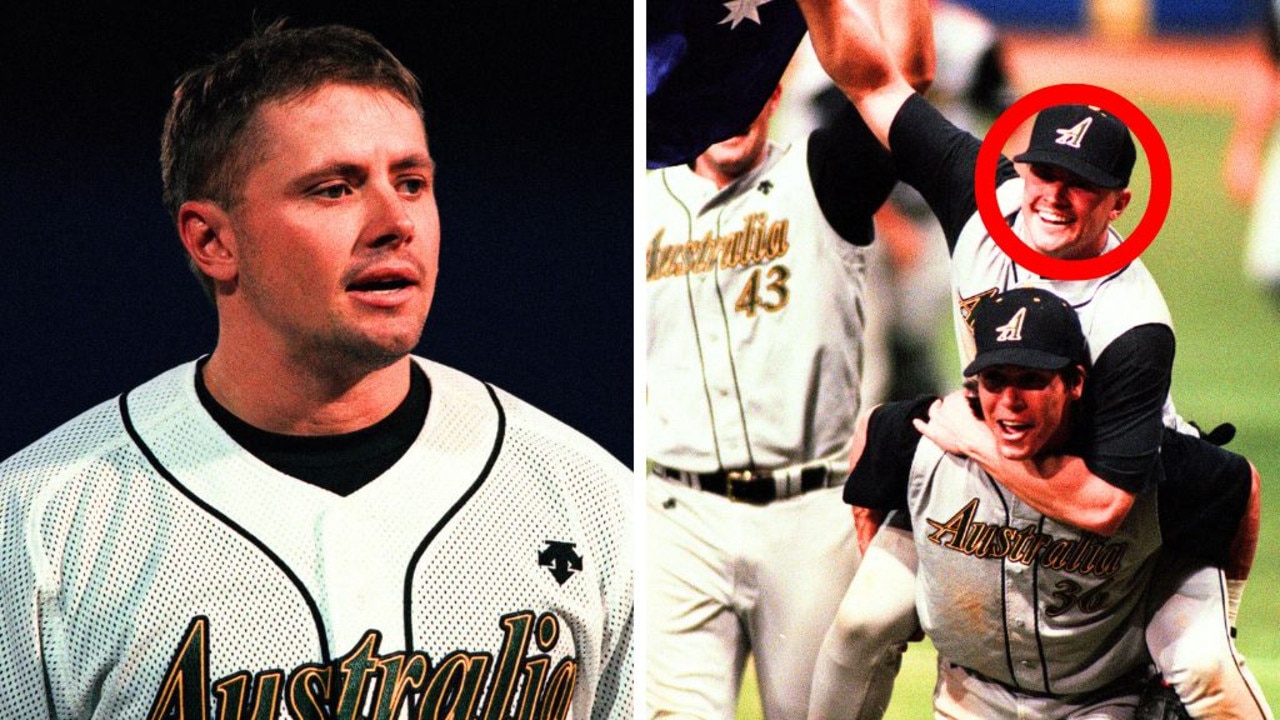Tokyo Olympics 2021: Why winning is no longer everything for Australia, Paul Kent
Australia have long overachieved at the Olympics and gone head-to-head with heavyweight nations. But now our competitive spirit is dead, writes Paul Kent.
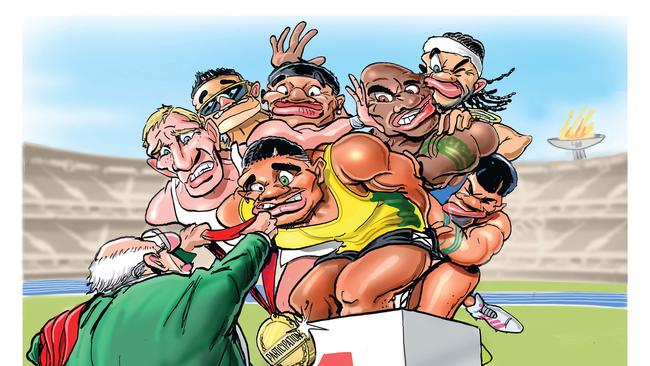
Olympics
Don't miss out on the headlines from Olympics. Followed categories will be added to My News.
Weakness has never been a part of Australian sport.
Australia’s Olympic story was written in the sweat of the overachievers. Toughness, when talent would not always do.
For many years Australia, with its comparatively small population, was the Little Country That Could.
It went head to head with the Americans in the pool. Held its own at the velodrome.
Australia’s reputation was the sum of its stories.
Kieran Perkins counted out and given up on, then slaying them from lane eight. Duncan Armstrong unheralded and unheard of, winning gold in world record time.
Cathy Freeman, a deep breath and iron will, taking on the world …
That spirit died this week, slaughtered with a stroke of the pen, the latest victim of politically correct weakness.
When it comes to Australia at the Olympic Games now, it seems, winning is no longer everything, it is not even required.
Kayo is your ticket to the best local and international sport streaming Live & On-Demand. New to Kayo? Try 14-days free now >
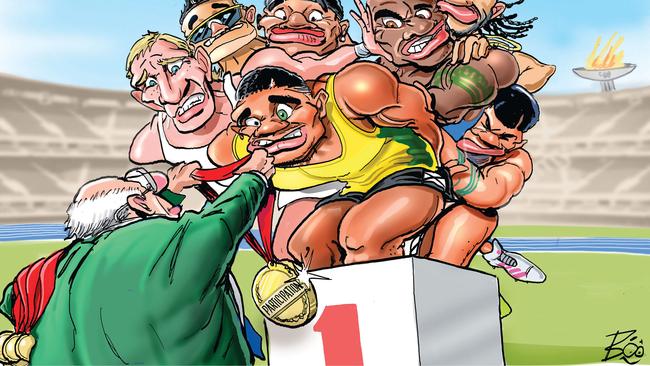
The AOC this week redefined what success looks like at the Olympics, apparently bypassing the traditional measures of success which were gold medals, silver medals and bronze medals.
The Olympic creed, faster, higher, stronger, is something for other countries.
For Australia, apparently it is enough now to have made it to the starting line.
Everybody gets a ribbon.
The AOC confirmed it will no longer have medal targets because, if you can believe it, the athletes felt it put them under too much pressure.
“The AOC did walk away from that after Rio,” Australian chef de mission Ian Chesterman said this week, speaking of medal targets.
“The feedback from the Athletes’ Commission was that it just wasn’t helpful.
“Athletes put enough pressure on themselves without having us putting more pressure on them.”
It gets worse.
The AOC has “broadened the definition of success”.
“We all love to win medals but we want to help athletes produce personal bests, produce performances that they’re really proud of,” Chesterman said.
“We need to get athletes over there, give them the best support that they can possibly get and help them … have their best day on the right day.
“We know if athletes do that, Australia will win medals and will be rightly proud of them.”
Good grief.
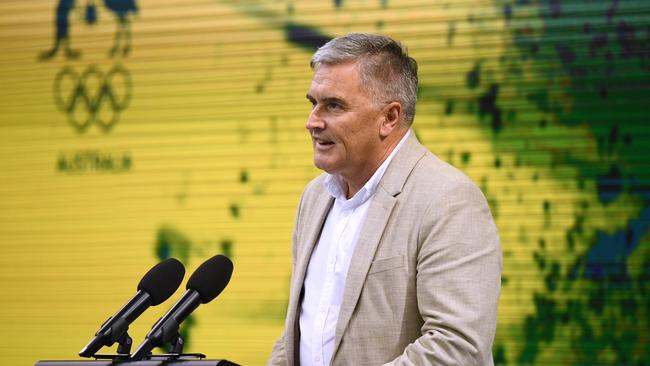
It was inevitable that the generation of schoolkids we shook our heads at all those years ago, where everybody got a ribbon for competing, and no first prize trophy was awarded, because that might discriminate, have finally made it to senior competition.
And their mindset follows them.
They want to go to an Olympics but they don’t want a medal forecast because it puts too much pressure on them.
And the AOC, funded by government money, which comes from the people, has indulged it.
The medal tally is part of every Olympics, which is not a participation sport.
The Olympics have been a propaganda weapon since Adolf Hitler marched into Berlin in 1936 to watch the supposed superiority of his Aryan nation, and it then went into overdrive when America and Soviet Russia spent the next 40 years after World War II trying to show the world their doctrine was superior.
And through it all Australia competed above itself.
There was Australia, fifth on the medal tally despite its tiny population, the next day Australia rose to fourth.
It energised the country, attracted eyeballs from even those with just a passing interest in the Games.
Now the athletes, far too indulged, say the medal forecast adds unwanted pressure.
Do they need to be reminded they are going to the Olympics? That it is not a high school zone carnival?
Pressure is part of it.
Dealing with that pressure also is as well.
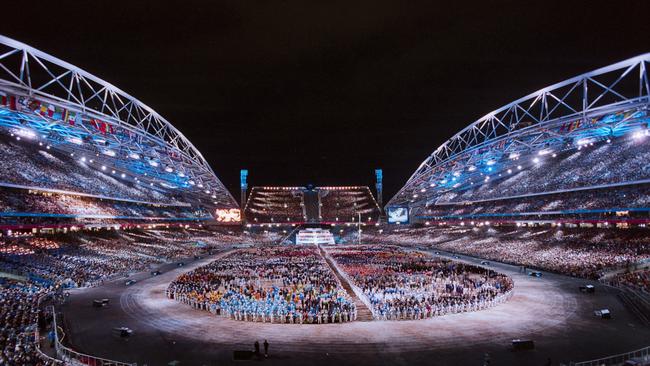
In his autobiography, Slaying The Dragon, American sprinter and former world record holder Michael Johnson spoke about the golden spikes and the pressure of wearing them in Atlanta, where he would win gold in the 200m and 400m.
Unlike many, who try to deny there is pressure, Johnson liked the pressure, embraced it. He knew that if he felt pressure, then it meant something to him. So he used it as an ally.
If an Australian Olympian cannot handle the external pressure of an administrator saying they are hoping for 25 medals at the Games, how can we hope they handle the internal pressure.
Resilience is as much a part of an athlete’s makeup as form and fitness. It’s mental toughness.
It reminds me of a story, recalled in these pages before, of the sports psychologist brought in to fix the All Blacks after they continually failed at World Cups.
There were three states of being for an athlete, he told them.
The first he called Space Mountain, the Disneyland ride where joy-riders got on a rollercoaster and set off into the dark.
They had no idea and no control where they were going. An athlete in this space, he warned, was in trouble.
The next stage he called white water rafting.
They were in the raft, with their teammates around them and a paddle in their hand, and they had to work together to navigate through the rapids against unforeseen obstacles.
The third stage he called America’s Cup. Everything was state of the art, carried few surprises, and they were quarantined from anything that would upset their preparation and performance.
He told the All Blacks this is where they sat and they were pretty pleased with themselves.
In the pursuit of sporting excellence, who would not want to be in that space?
No, he told them. Where they needed to be was white water rafting.
There in America’s Cup, the moment something went wrong they had no resilience, no experience in how to overcome it. It was a false sense of excellence.
The white water rafters knew exactly what to do.
It is not surprising the Australia athletes asked to have an obstacle removed; anything to reduce the head noise.
But they should have been denied that claim.
It speaks to their resilience.
The AOC has surrendered to its weaker self. They have become that generation of school kids where everybody gets a ribbon.
The Olympics are not a participation sport.
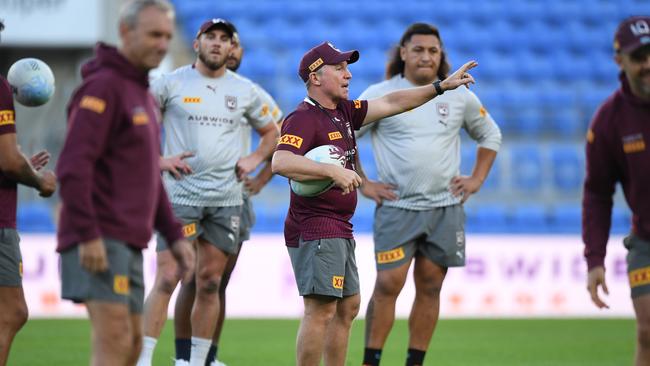
PRESSURE? HIT THE GREEN BUTTON
Speaking of epitaphs, Paul Green probably wrote his as Queensland coach on Friday when he walked out of a press conference after refusing to answer questions about Jai Arrow.
While Green obviously thought he was making a point by making a short statement and then walking out before a question could be asked, the reality is he left the questions to his players Christian Welch and Kurt Capewell to deal with.
Green is under enormous pressure in Newcastle.
While Queenslanders will tolerate a loss in Origin, albeit barely, they do not tolerate performances that can be regarded as anything less than a full Queenslander effort.
Which is what the Maroons have produced in their first two games of this Origin series.
All that is left for Queensland is to save face and to find something they can build on for next year.
There is a big difference between coaching club football at NRL level and coaching Origin, which Green is yet to exhibit.
The game plans are far more simple at Origin level but the emotional investment is far superior.
Mal Meninga’s success as an Origin coach, Phil Gould, Wayne Bennett … all came own the back of having their players pitch perfect mentally on the night.
That might include unorthodox ways of firing them up or, alternatively, shielding them when dramas hit camp.
Part of the coach’s job is absorbing the pressure in place of the players.
A coach walking out and leaving it to the players is not the way.
More Coverage
Originally published as Tokyo Olympics 2021: Why winning is no longer everything for Australia, Paul Kent




